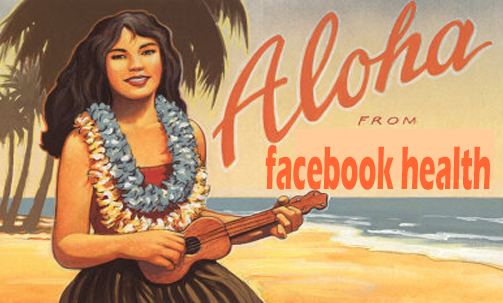The impending demise of Google health is a sign of our current reservation to embrace the power of connected and accessible Personal Health Record. Despite its potential to provide an avenue for an efficient and safe healthcare system, we chose to opt out of it. Why? The reason is simple; the public is not well informed about its potential benefits. Aggravated by lack of decisive public policy, the people remained unresolved as their leaders. Case in point is our EMR market, look at how chaotic it is out there. There’s a potpourri of hundreds of EMR applications that its potential users can no longer decide which is which. The people need direction. The people need guidance especially in making decisions about complex choices such as technology. The government should play a more active role in leading the people towards making these choices.
Can Social Media transform us? Can Facebook liberate us from this chaotic and wavering confusion? Will it make us “Like” Personal Health Records? Should I expect my latest CAT Scan Images to appear next to my latest Carribean Vacation photos? Let’s check it out from this article courtesy of The Palo Alto Patch.
Can Facebook Fix Health Care?
by Hanna Park
Facebook and a nonprofit health care group have announced plans to design an online service that they hope will replace the nation’s antiquated, paper-based health care system.The U.S. Health Care Warranty Exchange (USHCWE), a nonprofit health care warranty entity, plans to create a new health care system that provides adequate, affordable health coverage without any federal government involvement.
“The project started out five years ago, just with the idea of trying to come up with another health care industry for health coverage that didn’t involve the federal government or private health insurers,” USHCWE Founder Matthew R. Wright said. “As it evolved, we reached out to Facebook and the team that’s in charge there.”
Wright, who hopes to execute the plan by 2014, says health care will be more accessible through the use of technology such as social networking.“We looked at the benefits of us and [Facebook] teaming up and we found out [that] with the social media network, we can provide health care access just by a click of a button,” he said.An online health care system would, in part, make it easier for users to check their health care information and appointments.
“It will be easy for people to have their health records, confirm or deny doctors, track what they do, track their health care and have doctors target certain people with certain problems, because everything is privately controlled,” he said. “It will be a system [where] people will just sign up for health coverage and have their health coverage streamlined, instead of how the system is today and how strict it is.”
By joining Facebook—which may hit 1 billion users some time this year—in a movement to improve the current health care system, USHCWE hopes to foster a sustainable program, despite the inevitable factors of technology.“If we and the Facebook’s team team up to jump into other markets, it will have a longer lasting effect,” Wright said. “Other changes in the technology world won’t make it dissolve as quickly or lose value, because it’s helping more people and it’s connecting more people to get what they want too.”
Public Relations consultant Sharon Wright describes the additional benefits of switching the health care system from print to online.“There’s going to be some internal information—most of it will be computerized,” she said. “We’re trying to eliminate paper access so people that don’t have access to health care files will not be able to inadvertently look into anybody’s private information. That’s another way [Matthew Wright’s] going to secure people’s privacy to their medical records.”The privacy of members’ information will be protected though an online service, providing additional security for the user’s identity.“It’s also going to reduce fraud,” she said. “Because the records will be computerized, the health care exchange will have an independent fraud unit that will monitor doctors [and] anyone that has access to the members’ information to avoid health care fraud [including] double billing.”
Matthew Wright said he believes the lack of technology used in promoting health care today is causing the system to lag. “There’s not enough technology in the current health care market, that’s the problem,” he said. “Technology is our lives, and right now with the current health care system, you have to call a million numbers [and] you have to fill out paper forms. The younger generations, the middle generations and the baby boomers just don’t have the time to fill out papers.“This is a fast-paced life, so if we involve more technology into health care, it will save time, save money, streamline the whole health care process and it will be efficient and better for all Americans.”
Any Thoughts?






Pingback: cheap cialis online
Pingback: cialis price walgreens
Pingback: viagra generic
Pingback: online pharmacy viagra
Pingback: ed pills
Pingback: buy erection pills
Pingback: erectile dysfunction drugs
Pingback: best online pharmacy
Pingback: Buy cialis online
Pingback: vardenafil usa
Pingback: vardenafil usa
Pingback: buy levitra
Pingback: real money casino app
Pingback: betfair casino online nj
Pingback: viagra dosage
Pingback: real money casino app
Pingback: slot machine games
Pingback: no credit check loans
Pingback: cash payday
Pingback: online loans
Pingback: viagra 100mg
Pingback: best real money casinos
Pingback: top 10 canadian online casinos
Pingback: casino sites bonuses
Pingback: ocean casino online nj
Pingback: Planet7
Pingback: generic for cialis
Pingback: 20 cialis
Pingback: new cialis
Pingback: generic for cialis